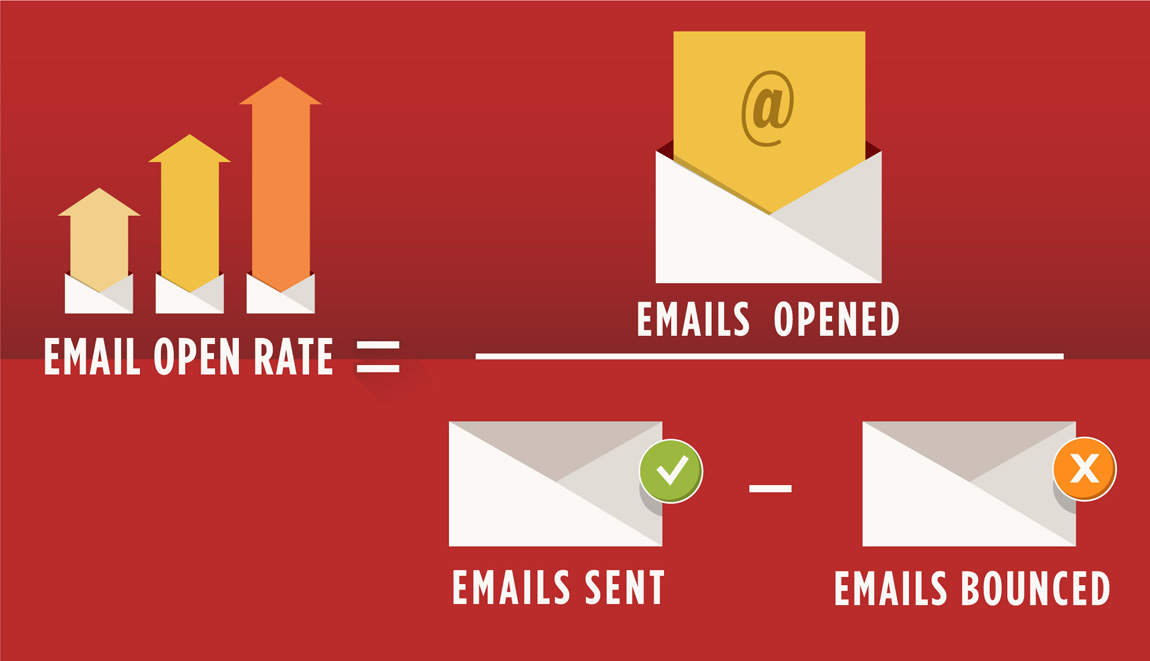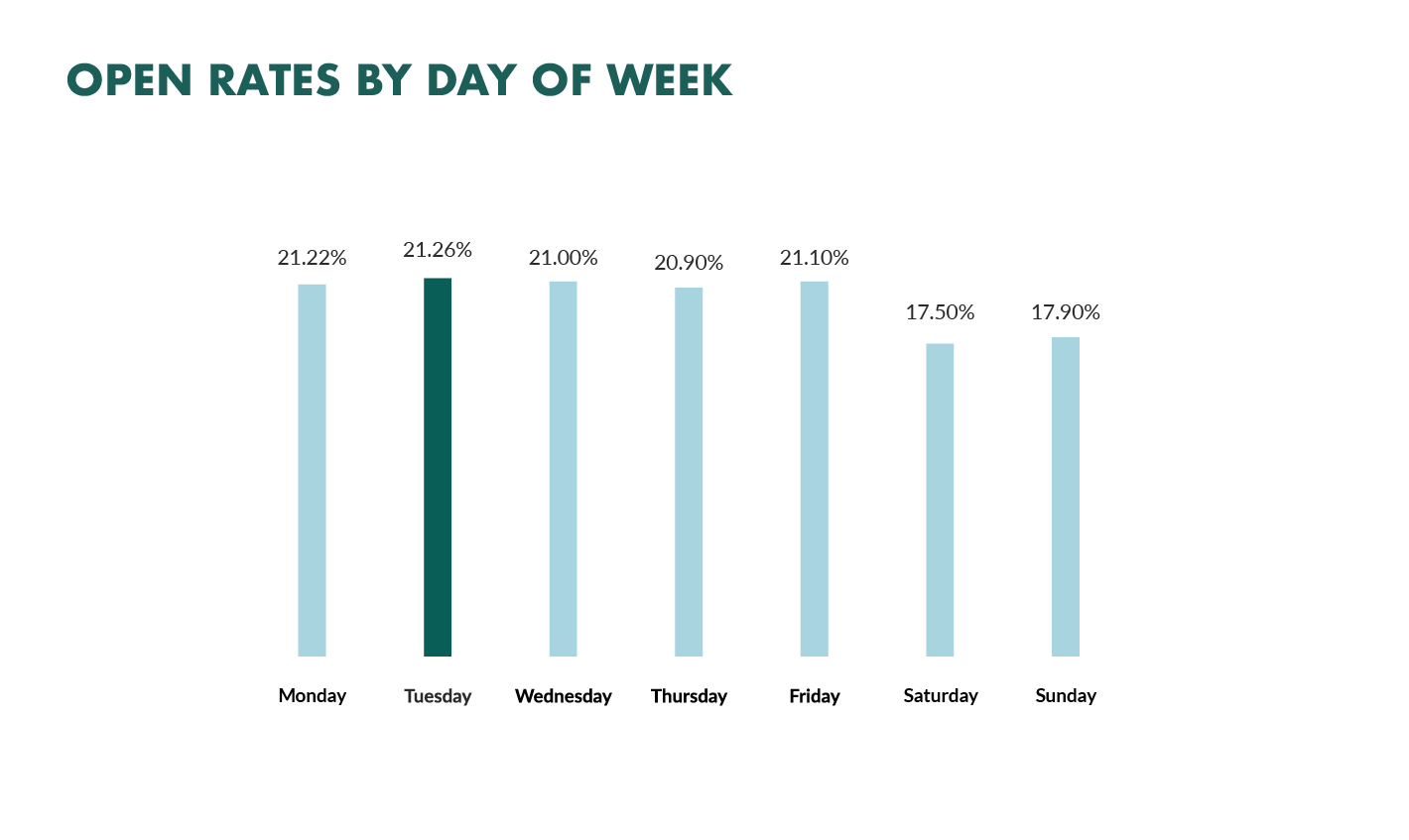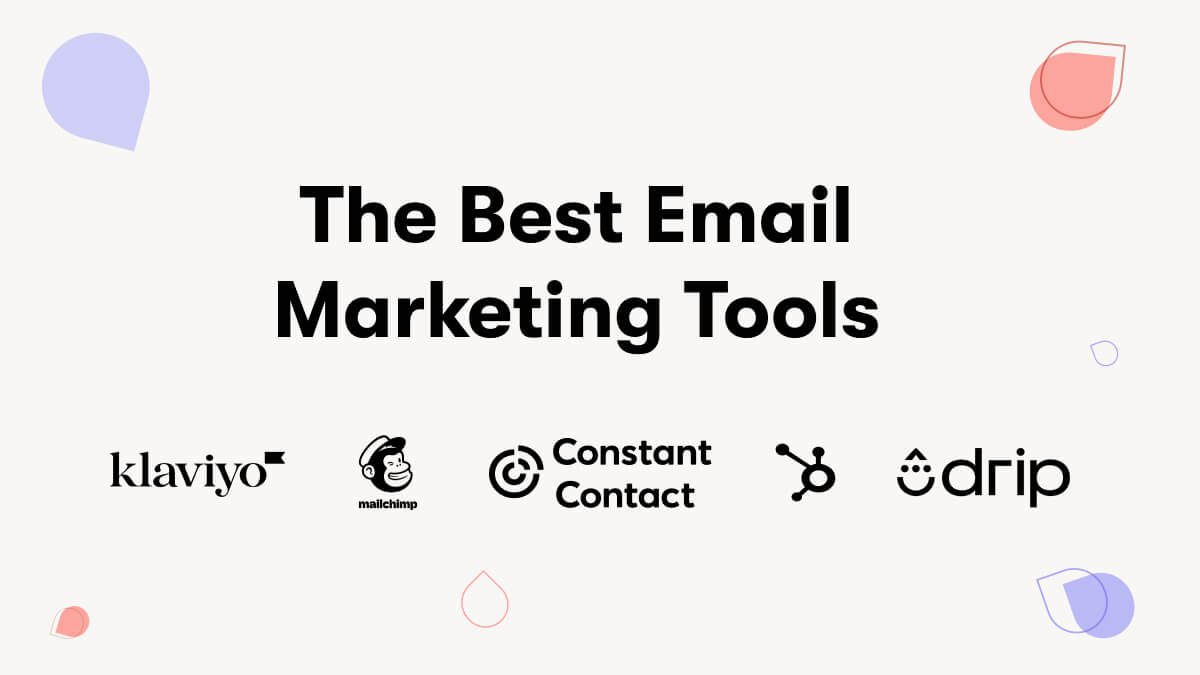Email open rates are crucial for email marketing success. They show how many people read your emails.
Understanding email open rates can boost your marketing efforts. High open rates mean your subject lines are effective and your audience is engaged. Low open rates suggest changes are needed to capture attention. By learning what influences these rates, you can improve your strategy.
This blog will explore the factors affecting email open rates, offering insights to help you achieve better results. From timing to content, we’ll cover essential tips to enhance your email marketing. Stay tuned to discover how to keep your audience interested and eager to read your emails.
Table of Contents
ToggleIntroduction To Email Open Rates
Email open rates are a vital metric in email marketing. They show the percentage of recipients who open an email campaign. Understanding email open rates helps in measuring engagement and refining marketing strategies.
Importance Of Open Rates
Open rates indicate the effectiveness of your email subject lines. High open rates mean your subject lines are compelling. Low open rates suggest a need for improvement.
Here are some reasons why open rates are crucial:
- Engagement Measurement: High open rates show active audience engagement.
- Content Relevance: They reflect the relevance of your content to the audience.
- Marketing Strategy: Open rates help refine and improve email marketing strategies.
- ROI Tracking: They assist in tracking the return on investment for email campaigns.
Current Trends
Current trends in email open rates reveal some interesting patterns. Mobile devices dominate email opens. Most people check emails on their phones. Personalization also plays a significant role in open rates.
Here are some recent trends:
- Mobile Optimization: Ensure your emails are mobile-friendly.
- Personalization: Personalized subject lines increase open rates.
- Timing: Sending emails at optimal times improves open rates.
- Segmentation: Segmenting your email list boosts engagement.
Below is a table showing average email open rates across industries:
| Industry | Average Open Rate |
|---|---|
| Retail | 18.39% |
| Healthcare | 21.48% |
| Finance | 19.69% |
Understanding these trends and adjusting your strategies accordingly can significantly improve your email open rates.

Credit: mailbakery.com
Crafting Irresistible Subject Lines
Email open rates are crucial for any email marketing campaign. One of the most effective ways to improve them is by crafting irresistible subject lines. A compelling subject line can make the difference between an email getting opened or ignored. Let’s dive into some effective techniques to create subject lines that grab attention and boost your open rates.
Personalization Techniques
Personalization can significantly impact your email open rates. Here are some techniques to consider:
- Use the recipient’s name: Include the recipient’s name in the subject line. It makes the email feel more personal.
- Location-based personalization: Mention the recipient’s city or area. For example, “Exciting offers in New York!”
- Behavioral targeting: Tailor the subject line based on past interactions. For example, “Missed your favorite product? It’s back in stock!”
Power Words To Use
Power words can trigger emotions and prompt action. Here are some effective power words to use in your subject lines:
| Emotion | Power Words |
|---|---|
| Curiosity | Secret, Insider, Revealed |
| Urgency | Now, Limited, Hurry |
| Excitement | Exclusive, Amazing, Special |
| Trust | Proven, Guaranteed, Reliable |
Using these power words can help your subject line stand out in a crowded inbox.
Optimizing Send Times
Optimizing the time you send emails can significantly boost your open rates. Sending emails at the right moment can make a difference. It helps your message stand out in crowded inboxes. Let’s explore the best days and times for different audiences.
Best Days To Send
Choosing the right day to send emails impacts their effectiveness. Studies show that certain days yield higher open rates. Consider these days:
- Tuesday: Most marketers find this day to be the most effective.
- Thursday: This day also sees high engagement.
- Wednesday: It’s a good middle-ground day for sending emails.
Here’s a table summarizing the best days:
| Day | Effectiveness |
|---|---|
| Tuesday | Highest |
| Thursday | High |
| Wednesday | Moderate |
Ideal Times For Different Audiences
Timing varies with audience type. Different groups have different habits. Here are some suggestions:
- Morning (8-10 AM): Best for working professionals. They check emails first thing in the morning.
- Afternoon (1-3 PM): Ideal for students or stay-at-home parents. They have more free time.
- Evening (7-9 PM): Good for general audiences. Many people browse their emails after dinner.
Using these time slots can help you target your emails better. It’s crucial to know your audience’s habits. Testing different times can also provide insights.

Credit: www.superoffice.com
Segmenting Your Email List
Email segmentation is a powerful way to improve email open rates. By dividing your email list into smaller, targeted groups, you can send more relevant content to your subscribers. This boosts engagement and fosters a stronger connection with your audience.
Benefits Of Segmentation
Segmenting your email list offers numerous advantages:
- Increased Open Rates: Targeted emails are more likely to be opened.
- Improved Click-Through Rates: Subscribers are more likely to click on links in relevant emails.
- Higher Conversion Rates: Personalized content converts better.
- Reduced Unsubscribes: Relevant emails keep your audience engaged, reducing the likelihood of unsubscribes.
Effective Segmentation Strategies
Consider these strategies to segment your email list effectively:
- Demographics: Segment by age, gender, location, or job title. This helps tailor content to the specific interests of each group.
- Behavioral Data: Use past purchase history, email engagement, or website activity. This provides insights into what your subscribers are interested in.
- Email Engagement: Group subscribers by how they interact with your emails. Create segments for frequent openers, occasional readers, and inactive subscribers.
- Preferences: Allow subscribers to choose their content preferences. This ensures they receive emails they find most interesting.
- Purchase History: Segment based on past purchases. Send product recommendations or special offers relevant to their buying behavior.
Use these strategies to segment your email list and see a noticeable improvement in your email open rates. Segmentation is a simple yet effective way to ensure your emails are relevant and engaging.
Creating Engaging Email Content
Creating engaging email content is crucial for improving email open rates. Readers are bombarded with emails every day. To stand out, your content needs to catch their attention quickly. This section will explore how to create engaging email content using compelling previews and visual elements.
Compelling Previews
Previews play a crucial role in grabbing attention. They give recipients a hint of what’s inside. A well-crafted preview can make the difference between an open and a delete.
- Subject Line: Keep it short and intriguing. Use action words to create urgency.
- Preview Text: This is the text that appears next to the subject line. Make it engaging and relevant.
Consider the following tips for effective previews:
- Use personalization. Add the recipient’s name to the subject line.
- Create curiosity. Ask a question or tease the content.
- Be clear. The preview should reflect the email’s content.
Visual Elements
Visual elements can significantly enhance the appeal of your emails. They break up text and make the email more engaging.
| Type of Visual | Benefits |
|---|---|
| Images | Make the email visually appealing and highlight key points. |
| Videos | Engage readers and convey complex information quickly. |
| GIFs | Add a fun element and capture attention. |
Here are some best practices for using visual elements:
- Ensure images are relevant and high quality.
- Optimize visuals for faster loading times.
- Use alt text for images. This helps with accessibility.
By focusing on compelling previews and visual elements, you can create engaging email content that boosts your open rates.
A/b Testing For Success
A/B testing is a powerful method to improve your email open rates. It allows you to compare two versions of an email to see which one performs better. This helps you make data-driven decisions and optimize your email marketing strategy.
What To Test
There are many elements you can test in an email. Some of the most important ones include:
- Subject Lines: Test different subject lines to see which one gets more opens.
- Sender Name: Try using different sender names to find out which one is more trustworthy.
- Preheader Text: Experiment with different preheader texts to see which one attracts more attention.
- Send Time: Test different times and days to find the best sending time.
- Personalization: Test using the recipient’s name or other personal details.
Analyzing Results
Once you have run your A/B test, it’s crucial to analyze the results. Look at the open rates for each version and determine which one performed better. Use this information to make informed decisions for future emails.
You can use a table to keep track of your A/B test results:
| Test Element | Version A Open Rate | Version B Open Rate | Winner |
|---|---|---|---|
| Subject Line | 20% | 25% | Version B |
| Sender Name | 18% | 22% | Version B |
This table helps you quickly see which version performed better. It also helps you understand patterns and trends over time.
A/B testing is an ongoing process. Continuously test and analyze different elements to keep improving your email open rates.
Improving Email Deliverability
Improving email deliverability is essential for increasing email open rates. Ensuring your emails reach the intended inbox is a crucial first step. Here are some strategies to help enhance deliverability.
Avoiding Spam Filters
Spam filters can prevent your emails from reaching your audience. Here are some tips to avoid them:
- Use a recognizable sender name: People are more likely to open emails from known senders.
- Craft a clear subject line: Avoid using spammy words like “free” or “urgent”.
- Include a plain text version: Some filters prefer emails with plain text versions.
- Check your email content: Avoid excessive use of images, links, and special characters.
Maintaining A Clean List
A clean email list ensures that your messages are sent to active, engaged recipients. Here are ways to maintain it:
- Regularly remove inactive subscribers: Identify and delete contacts who haven’t engaged in a while.
- Use double opt-in: Confirm new subscribers’ interest by sending a confirmation email.
- Monitor bounce rates: High bounce rates can harm your sender reputation. Remove hard bounces promptly.
- Segment your audience: Tailor content to specific groups for better engagement.
Implementing these practices can greatly improve your email deliverability and, consequently, your open rates.
Leveraging Analytics Tools
To improve email open rates, you need to use analytics tools. These tools help you understand how your emails perform. By tracking key metrics, you can make informed decisions. This process involves monitoring open rates, analyzing data, and adjusting strategies. Let’s dive into how you can leverage analytics tools to boost your email open rates.
Tracking Open Rates
Tracking open rates is vital for email marketing success. Analytics tools provide detailed reports on how many recipients open your emails. These tools track the percentage of recipients who open your emails. You can see this data in real-time or for specific time frames.
Here is a simple example of how tracking works:
| Email Campaign | Sent Emails | Open Rate |
|---|---|---|
| Welcome Series | 1,000 | 45% |
| Monthly Newsletter | 1,200 | 35% |
| Special Promotion | 900 | 50% |
With this data, you can identify which campaigns perform best. Higher open rates indicate that your subject lines and timing are effective.
Adjusting Strategies Based On Data
Once you have tracked your open rates, the next step is adjusting your strategies. Analytics tools provide valuable insights. You can see which subject lines get more opens. You can also see what times of day work best.
Here are some strategies to consider:
- Subject Line Testing: Experiment with different subject lines. Use A/B testing to find the most engaging ones.
- Timing Optimization: Send emails at different times and days. Identify when your audience is most active.
- Personalization: Personalize emails with recipient names and relevant content.
By using this data, you can refine your email marketing strategies. This approach helps improve open rates and overall engagement.
Case Studies And Success Stories
Email open rates are a key performance metric in email marketing. Understanding how to improve these rates is crucial. By studying case studies and success stories, we can learn effective strategies.
Real-life Examples
Several companies have seen significant improvements in their email open rates. Here are a few examples:
| Company | Initial Open Rate | Improved Open Rate | Strategy Used |
|---|---|---|---|
| Company A | 15% | 30% | Personalized Subject Lines |
| Company B | 20% | 35% | Segmented Email Lists |
| Company C | 18% | 32% | Optimized Send Times |
Lessons Learned
From these success stories, we can draw some valuable lessons:
- Personalized Subject Lines – Tailoring subject lines to the recipient can double open rates.
- Segmented Email Lists – Dividing email lists into smaller, targeted groups increases engagement.
- Optimized Send Times – Sending emails at optimal times boosts open rates.
These lessons show that small changes can have a big impact. Personalized communication, targeted lists, and timing are key factors in improving email open rates.
Future Trends In Email Marketing
Email marketing is evolving rapidly. New technologies are changing how businesses connect with their audience. Understanding future trends can help improve email open rates. One of the email marketing trends that businesses can capitalize on is personalization. Tailoring email content to meet each recipient’s interests and needs can significantly increase engagement. Additionally, utilizing interactive content such as polls, quizzes, and videos can help to keep the audience engaged and interested in the email content. Keeping up with these email marketing trends can be essential in staying ahead of the competition and maximizing the impact of email campaigns.
Emerging Technologies
Artificial Intelligence (AI) is becoming a key tool in email marketing. AI can predict user behavior. It can personalize email content better than ever before.
Machine Learning (ML) is another important technology. ML algorithms analyze past email performance. They can suggest the best times to send emails. They can also predict which subject lines will get the most opens.
Voice-Activated Emails are on the rise. Devices like Amazon Echo and Google Home are popular. People are using voice commands more and more. Marketers need to optimize emails for voice search. This will increase accessibility and open rates.
Predicted Changes
Email marketing will become more interactive. Interactive content engages users. It can include quizzes, polls, and surveys. These elements make emails more engaging. They encourage users to interact with the content.
Hyper-Personalization will be crucial. Basic personalization is no longer enough. Users expect emails tailored to their preferences. This includes dynamic content that changes based on user behavior. It also involves using real-time data to customize emails.
Privacy Regulations will impact email marketing. Laws like GDPR and CCPA are becoming stricter. Marketers must ensure they comply with these regulations. This means being transparent about data usage. It also means getting clear consent from users.
Mobile Optimization is essential. More people read emails on mobile devices. Emails need to be mobile-friendly. This includes using responsive design. It also means keeping content short and to the point.
Dark Mode support is growing. Many users prefer dark mode. Emails should be readable in both light and dark modes. This improves the user experience and boosts open rates.
| Trend | Description |
|---|---|
| AI and ML | Predicts user behavior, optimizes send times, personalizes content |
| Voice-Activated Emails | Optimizes emails for voice search |
| Interactive Content | Engages users with quizzes, polls, and surveys |
| Hyper-Personalization | Uses real-time data for dynamic content |
| Privacy Regulations | Ensures compliance with GDPR, CCPA, and other laws |
| Mobile Optimization | Uses responsive design, short and concise content |
| Dark Mode Support | Ensures readability in both light and dark modes |

Credit: www.mailmunch.com
Frequently Asked Questions
What Affects Email Open Rates?
Several factors affect email open rates, including subject lines, timing, and sender reputation. Personalization and relevance also play significant roles.
How Can I Improve My Email Open Rates?
Improve email open rates by crafting engaging subject lines, segmenting your audience, and sending emails at optimal times. Personalization helps too.
What Is A Good Email Open Rate?
A good email open rate varies by industry. Generally, a rate between 15% to 25% is considered average.
Why Are My Email Open Rates Low?
Low email open rates can be due to poor subject lines, irrelevant content, or bad timing. Sender reputation matters too.
What Are Some Proven Tips to Boost Email Open Rates?
Looking for effective boost email engagement strategies? Personalize your subject lines to grab attention. Use clear and concise language. Incorporate compelling and relevant content. Experiment with different send times to see what works best. Utilize A/B testing to refine your approach. Interactive elements and emojis can also increase open rates.
How Can I Improve My Email Open Rates Using Proven Strategies?
If you want to boost email engagement rates, there are proven strategies to improve your email open rates. Personalizing the subject line, creating a sense of urgency, and segmenting your audience can all help increase the likelihood that your emails will be opened and read by your recipients.
Conclusion
Improving email open rates is crucial for effective communication. Focus on engaging subject lines. Personalize your content to connect with readers. Send emails at optimal times for your audience. Test and tweak your strategies regularly. Keep your emails concise and relevant. Utilize compelling visuals and interactive elements to make your emails more engaging. Incorporate call-to-actions to encourage interaction and responses from your recipients. Implement these strategies to boost email engagement and improve the overall effectiveness of your email marketing efforts.
Always provide value to your subscribers. Track your results and adjust accordingly. With these tips, you can boost your email open rates and achieve better engagement. Happy emailing!








